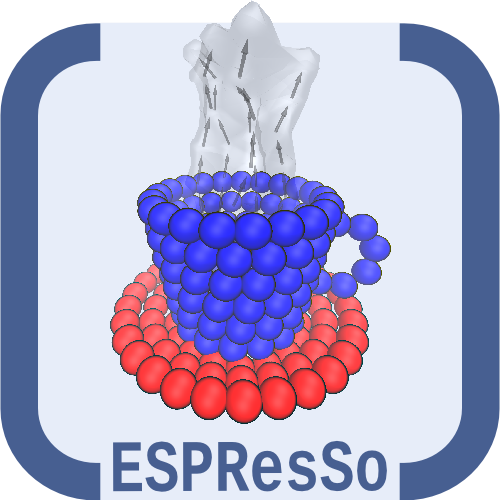Helping Libraries
libctl¶
This is libctl, a Guile-based library for supporting flexible control files in scientific simulations. For more information about libctl, please refer to libctl Documentation.
Available versions of libctl in ULHPC:¶
chem/libctl/3.2.2-intel-2017a
chem/libctl/4.0.0-intel-2018a
chem/libctl/4.0.0-intel-2019a
Libint¶
Libint library is used to evaluate the traditional (electron repulsion) and certain novel two-body matrix elements (integrals) over Cartesian Gaussian functions used in modern atomic and molecular theory.
Available versions of Libint in ULHPC¶
chem/Libint/1.1.6-GCC-8.2.0-2.31.1
chem/Libint/1.2.1-intel-2018a
Libxc¶
Libxc is a library of exchange-correlation functionals for density-functional theory. The aim is to provide a portable, well tested and reliable set of exchange and correlation functionals that can be used by all the ETSF codes and also other codes.
Available versions of Libxc in ULHPC¶
chem/libxc/3.0.0-intel-2017a
chem/libxc/3.0.1-intel-2018a
chem/libxc/4.2.3-intel-2019a
chem/libxc/4.3.4-GCC-8.2.0-2.31.1
chem/libxc/4.3.4-iccifort-2019.1.144-GCC-8.2.0-2.31.1
PLUMED¶
PLUMED works together with some of the most popular MD engines, such as ACEMD, Amber, DL_POLY, GROMACS, LAMMPS, NAMD, OpenMM, DFTB+, ABIN, CP2K, i-PI, PINY-MD, and Quantum Espresso. In addition, PLUMED can be used to augment the capabilities of analysis tools such as VMD, HTMD, OpenPathSampling, and as a standalone utility to analyze pre-calculated MD trajectories.
PLUMED can be interfaced with the host code using a single well-documented API that enables the PLUMED functionalities to be imported. The API is accessible from multiple languages (C, C++, FORTRAN, and Python), and is thus compatible with the majority of the codes used in the community. The PLUMED license (L-GPL) also allows it to be interfaced with proprietary software.
Available versions of PLUMED in ULHPC¶
chem/PLUMED/2.4.2-intel-2018a
chem/PLUMED/2.5.1-foss-2019a
chem/PLUMED/2.5.1-intel-2019a
ESPResSo¶
ESPResSo is a highly versatile software package for performing and analyzing scientific Molecular Dynamics many-particle simulations of coarse-grained atomistic or bead-spring models as they are used in soft matter research in physics, chemistry and molecular biology. It can be used to simulate systems such as polymers, liquid crystals, colloids, polyelectrolytes, ferrofluids and biological systems, for example DNA and lipid membranes. It also has a DPD and lattice Boltzmann solver for hydrodynamic interactions, and allows several particle couplings to the LB fluid.
ESPResSo is free, open-source software published under the GNU General Public License (GPL3). It is parallelized and can be employed on desktop machines, convenience clusters as well as on supercomputers with hundreds of CPUs, and some modules have also support for GPU acceleration. The parallel code is controlled via the scripting language Python, which gives the software its great flexibility.
Available versions of ESPResSo in ULHPC¶
phys/ESPResSo/3.3.1-intel-2017a-parallel
phys/ESPResSo/3.3.1-intel-2018a-parallel
phys/ESPResSo/4.0.2-intel-2019a
phys/ESPResSo/4.0.2-intelcuda-2019a
To know more information about ESPResSo tutorial and documentation, please refer to ESPRessSo documentation.
UDUNITS¶
The UDUNITS package supports units of physical quantities. Its C library provides for arithmetic manipulation of units and for conversion of numeric values between compatible units. The package contains an extensive unit database, which is in XML format and user-extendable. The package also contains a command-line utility for investigating units and converting values.
Available version of UDUNITS in ULHPC¶
phys/UDUNITS/2.2.26-GCCcore-8.2.0
To know more information about UDUNITS tutorial and documentation, please refer to UDUNITS 2.2.26 Manual.
Tip
If you find some issues with the instructions above, please report it to us using support ticket.


